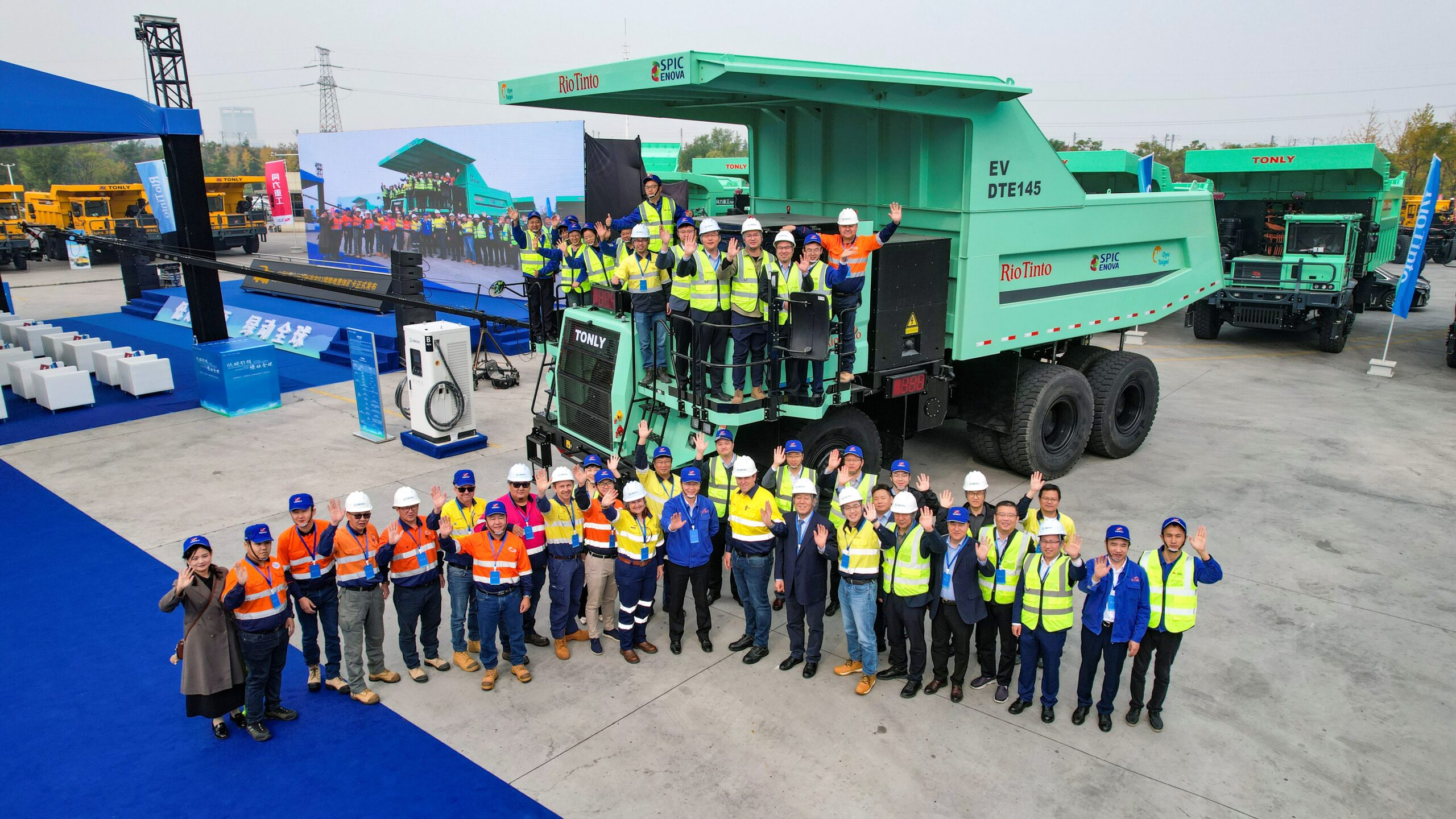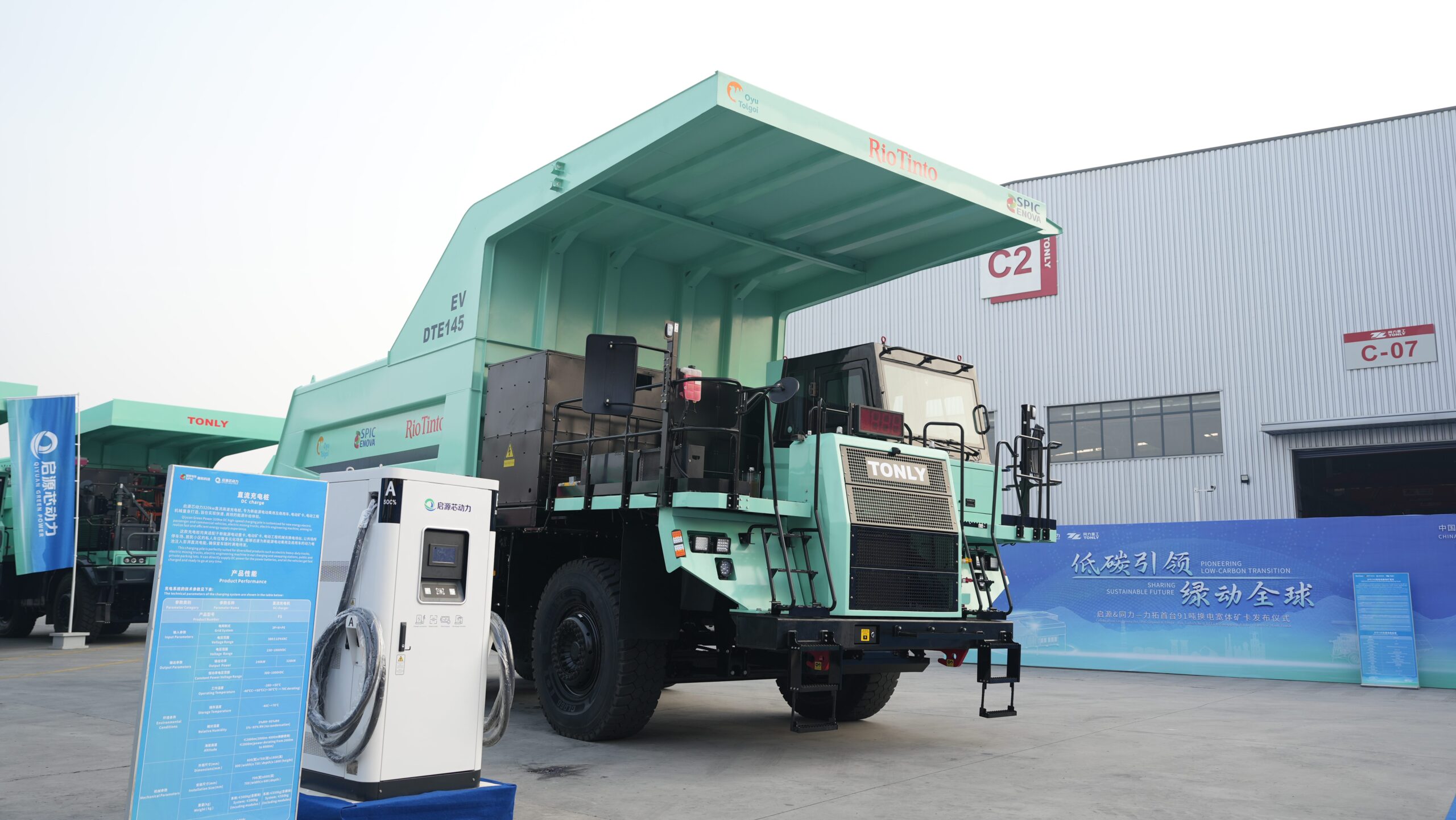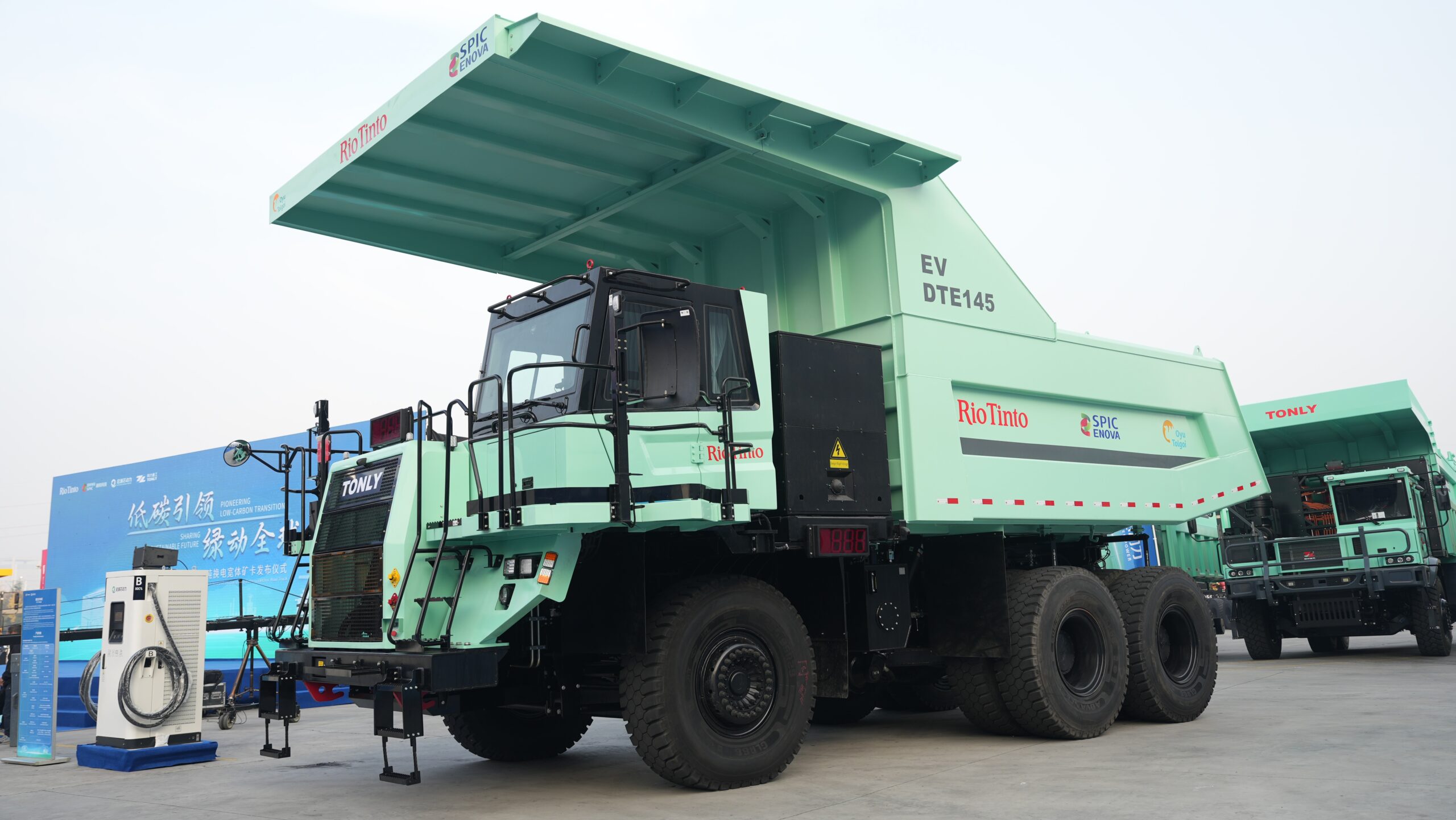Rio Tinto and China’s State Power Investment Corporation partner to trial battery swap truck technology

Rio Tinto will partner with China’s State Power Investment Corporation (SPIC) to demonstrate battery swap electric haul truck technology at the Oyu Tolgoi copper mine in Mongolia. Battery swapping technology allows a battery electric vehicle to quickly exchange a discharged battery pack for a fully charged one, instead of recharging the vehicle at a static charging station. The technology is already applied on haul trucks in mining operations across China, and this collaboration will enable Rio Tinto to demonstrate a complete battery electric truck and charging ecosystem at one of its operations. The two-year project will demonstrate eight mining haul trucks (91 tonne payload), 13 batteries (800kWh), and a robotic battery swap and charging station in non-production activities in the aboveground non-production operations at Oyu Tolgoi. Rio Tinto operates approximately 700 haul trucks across its global operations of which 100 are classified as small or medium class (100 – 200 tonne payload).
Rio Tinto Chief Decarbonisation Officer Jonathon McCarthy said: “By partnering with the State Power Investment Corporation, we will be demonstrating the latest technology and innovation available in China and assessing its potential to help decarbonise our operations quickly and cost effectively. “This demonstration will allow us to explore applications for battery swap technology that deliver more flexibility and less downtime than current static charging technologies. This work will complement the electrification pilots of ultra class mining haul trucks planned for the Pilbara. “We look forward to partnering on more opportunities in the future to apply China’s innovations to the global resources sector and contribute to the world’s low-carbon transition.”
Chairman of State Power Investment Group Capital Holding Co., Ltd Han Zhiwei said: “Through our collaboration with Rio Tinto, we are bringing leading green transportation innovations to the international market, showcasing the strength of Chinese enterprises in the field of green technology innovation. We hope our low-carbon technologies will assist Rio Tinto in achieving its decarbonisation targets, and we look forward to continued cooperation between both parties to jointly promote the application of green energy”.
Oyu Tolgoi Chief Executive Officer Deirdre Lingenfelder said: “We are proud the Oyu Tolgoi team is playing a pivotal role in advancing this innovative technology on behalf of Rio Tinto. This project represents a significant step in our ongoing decarbonisation journey, aligning closely with Oyu Tolgoi’s strategic commitment to sustainable growth. By expanding our use of underground battery electric equipment and implementing other emissions reduction initiatives, we are actively driving progress toward a net zero-carbon future for our operations.”
Technical experts from Rio Tinto and Oyu Tolgoi have worked closely with SPIC and truck manufacturer Tonly to adjust equipment design to align with Rio Tinto electrical and truck safety requirements. The trucks will perform tailings dam rehabilitation work and topsoil movement and be operated and maintained by Oyu Tolgoi personnel. Each battery is anticipated to last up to 8 hours, depending on the work performed, and the battery swap process takes around 7 minutes, enabling increased use of the equipment through minimal charging downtime. The first truck will arrive at Oyu Tolgoi this year and the remaining seven trucks, along with the battery swap and charging infrastructure, will be in operation by mid-2025. Rio Tinto is committed to reaching net-zero Scope 1 and 2 emissions by 2050 and believes Chinese innovation and technologies can play an important role in achieving this.




